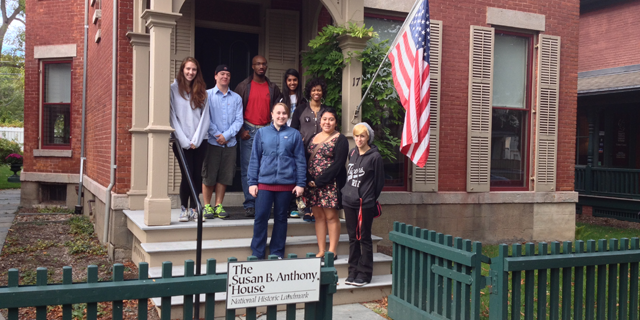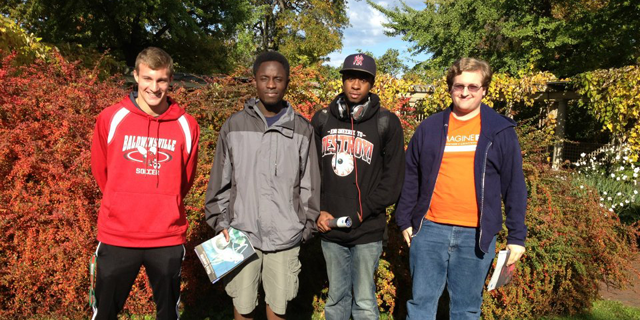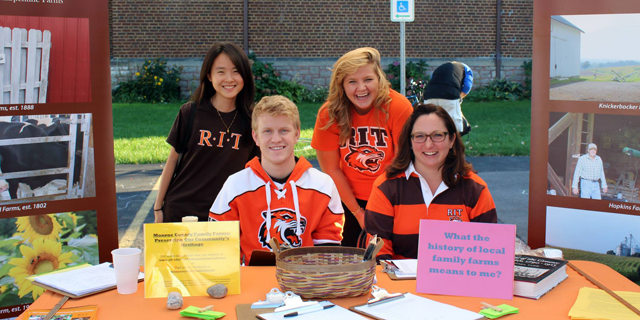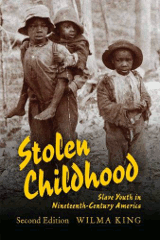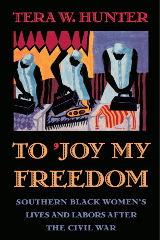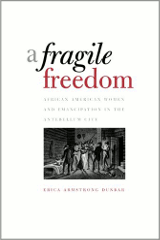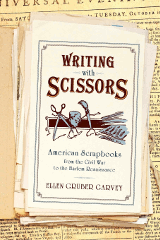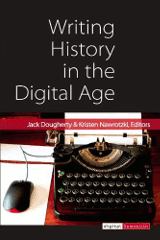I currently teach survey courses in U.S. history since 1945; U.S. women's history; and the history of the family in the U.S, as well as seminars on oral history and on research methods for public history and museum studies. My women's history and family history courses are cross-listed with women's and gender studies. I have also taught seminars on women and social movements and on topics in recent political and cultural history, including Reagan's America and the war on drugs and mass incarceration.
Many of my courses include public history projects in order to involve undergraduate students in the process of researching and writing history while producing meaningful final products of use to the broader community. For example, in my Spring 2014 history of the family in the U.S. course, we collaborated with the Library Company of Philadelphia to develop content for a web exhibit about the rare Friendship Albums in their collection. The Friendship Albums are collections of original writing and paintings gathered and circulated by free African American women before the Civil War. Relatives, friends and fellow abolitionists contributed poems, prose, and watercolor paintings to these albums, sometimes calling for political reforms and other times consoling the owner of the album upon the loss of a child or other loved one. The albums thus crossed public and private spheres, demonstrated the education and achievements of middle-class free blacks in Philadelphia and other Northern cities, and helped to create and sustain networks of abolitionists across the Northeast.
RIT students worked in pairs to transcribe pages of the friendship albums, and to apply keyword “tags” to assist researchers in finding specific pages of interest. To learn about the historical context the albums were created in, we studied works on African Americans in slavery and freedom, including Wilma King's Stolen Childhood and Tera Hunter's To 'Joy My Freedom. Elizabeth Armstrong Dunbar's A Fragile Freedom: African American Women and Emancipation in the Antebellum City helped us understand the significance of literacy practices in general and the Friendship Albums in particular to their owners and contributors, while Ellen Gruber Garvey's Writing With Scissors aided us in thinking broadly about album-making and its role in shaping personal and family identities, in the past and today.
My students concluded the project by creating their own contributions to a modern-day Friendship Album. Some of their reflections on the meaning and legacy of the Friendship Albums will be featured on the Library Company's website and blog (forthcoming on lcpalbumproject.org), which is being developed with assistance from RIT digital humanities scholars Lisa Hermsen and Shaun Foster.
I enjoy collaborating with fellow scholars, archivists, librarians, curators, and public historians on projects, and my students have also conducted oral history interviews with community members and worked with young women in a juvenile prison. I frequently incorporate new readings and assignments, and find inspiration from the experiences of other teachers and scholars. For example, the chapters in the recent collection Writing History in the Digital Age inspired me to have my women's history students research and write new or improve existing Wikipedia entries on women subjects, in part because women are vastly underrepresented as both subjects and authors on Wikipedia. Please get in touch with me at tamar.carroll@rit.edu if you have a suggestion for a collaborative project, or if you would like to swap ideas about teaching and learning.
